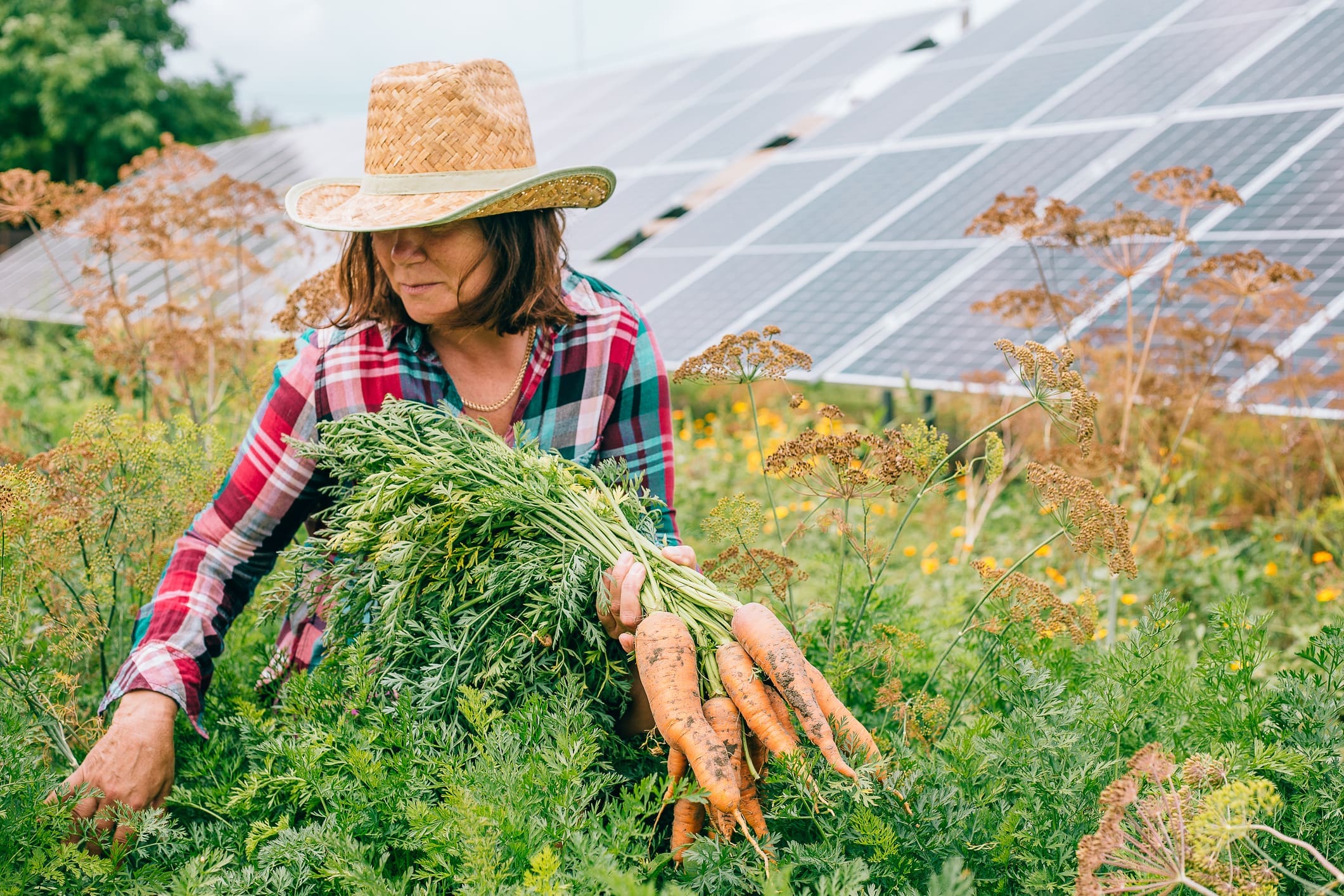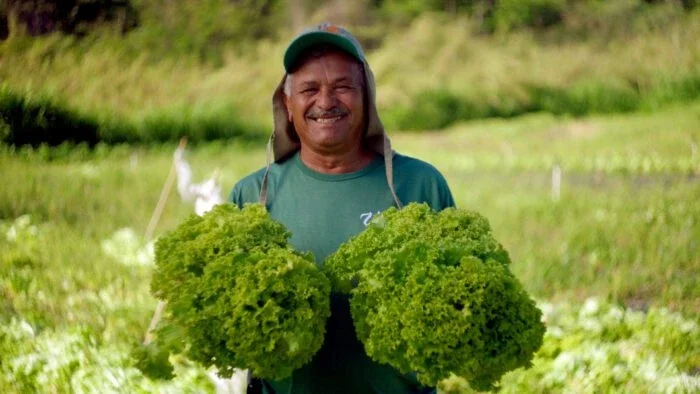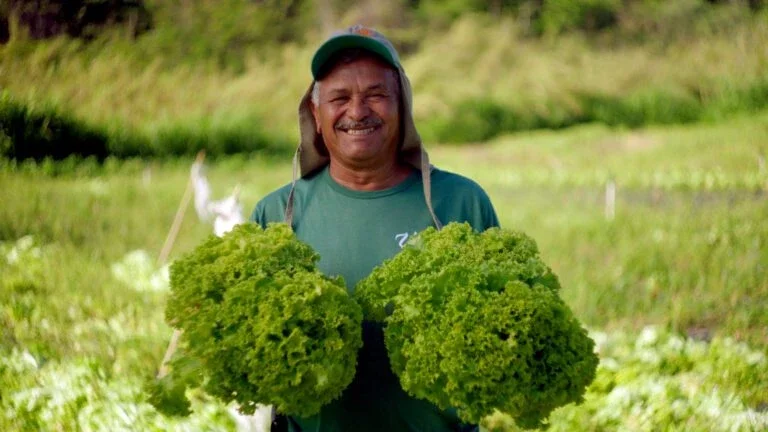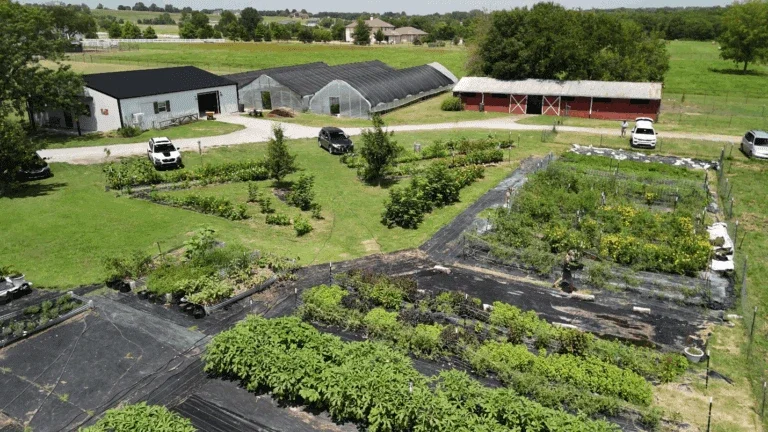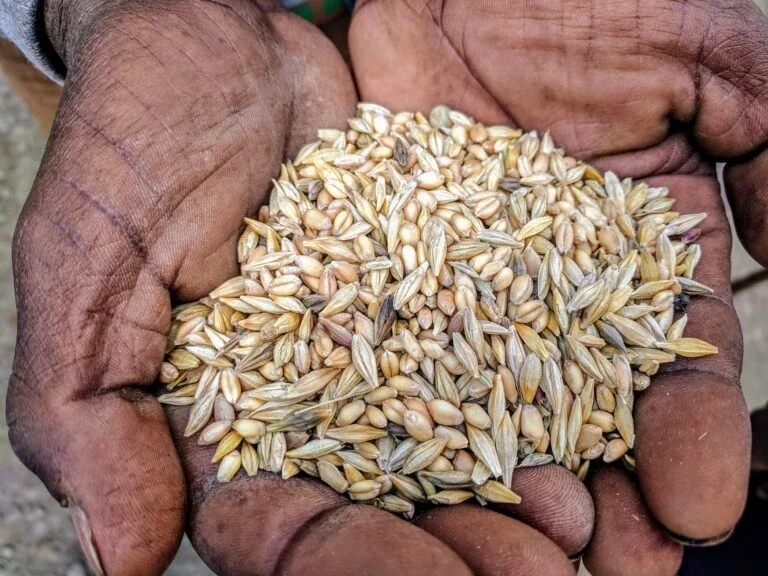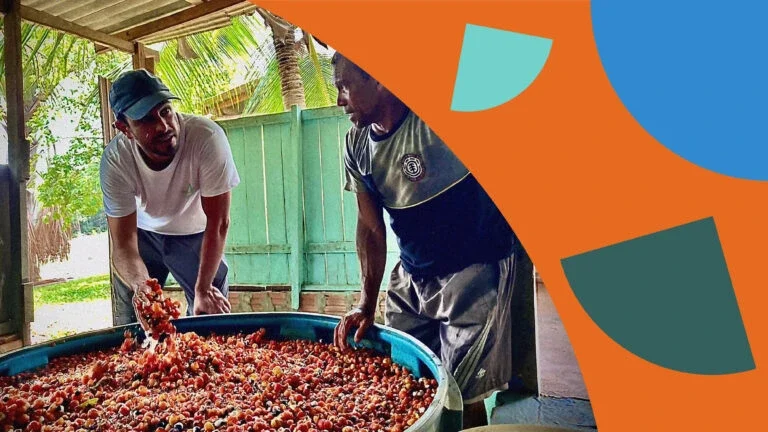Why It Matters
- 0YearsYears
in increased life expectancy from healthy eating
- 0%%
return on investment for farmers transitioning to regenerative agriculture
- 0TonsTons
of CO2 can be sequestered through improved farming practices
The health of people and planet are linked
When food systems fail, the consequences are felt first by people — especially those most vulnerable to climate change and food insecurity.
Our Strategy
- 1 Innovative Research: We support pioneering research in food science including, nutrition access, and agricultural practices informed by communities and tested with academic rigor to improve the quality of foods we eat and how we grow them. Read more about The Periodic Table of Food Initiative.
- 2 Evidence-Informed Approaches: We work to advance solutions that support farmers, reduce the burden of diet-related disease, and enable communities to thrive. Read more about our Food is Medicine Big Bet.
- 3 Scalable Solutions: We invest in solutions that connect and support regenerative food suppliers with sustainable markets, reaching the most vulnerable people in the U.S., Africa, South America and around the world. Read more about our Regenerative School Meals Big Bet.
Our Commitment
We have committed more than US$220 million to nutrition initiatives inspired by the food system visionaries, benefiting people, the planet, markets, jobs, and beyond.
This includes a ‘Big Bet’ of US$100 million to advance universal locally grown and regenerative school meals both in the United States and around the world; a ‘Big Bet’ of US$100 million to advance Food is Medicine solutions in the United States; and more than US$20 million for the Periodic Table of Food Initiative, which is providing standardized tools, data, and training to map food quality of the world’s edible biodiversity.
Impact Stories
We are dedicated to transforming our food system so it nourishes both people and the planet.
Recent News
- Jan 16 2026Germany’s BMZ, Novo Nordisk Foundation, Rockefeller Foundation, and WFP Launch New School Meals Accelerator to Help Governments Reach an Additional 100 Million Children With Nutritious Meals
- Jan 15 2026New $10 Million Fund To Accelerate Food is Medicine Adoption in the United States
- Jan 14 2026Rockefeller Foundation “FOOD 2050” Documentary Explores Feeding a Planet of 10 Billion"
